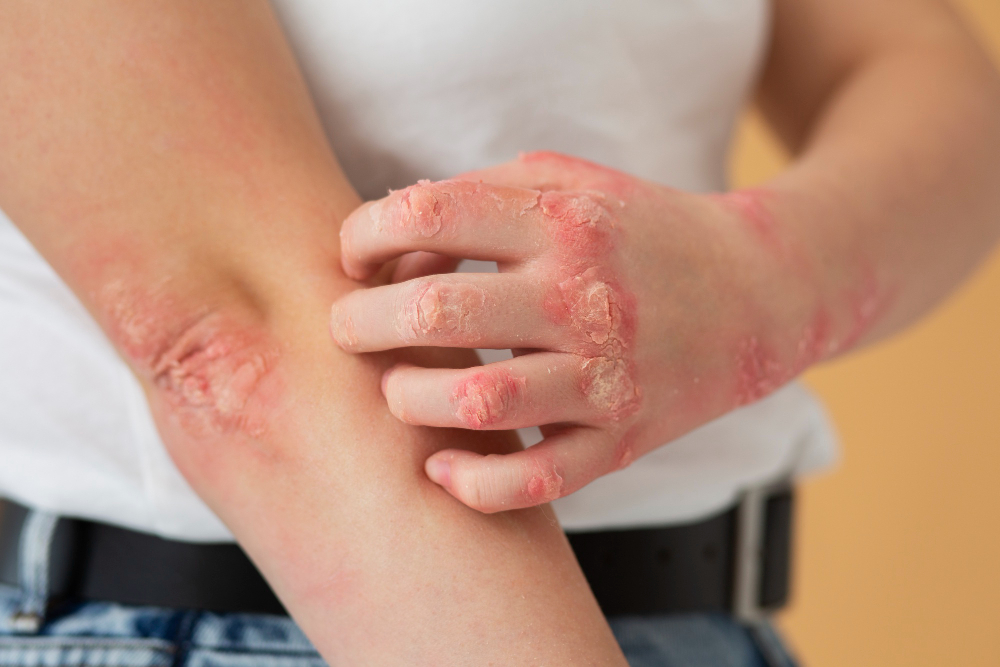What is Psoriasis?
Psoriasis is a long-lasting skin condition. It causes red, scaly patches to appear on the skin. These patches can be itchy or sore. Often, psoriasis affects the elbows, knees, scalp, and lower back. However, it can show up anywhere on the body. While psoriasis is not contagious, it can affect your daily life. According to the World Health Organization (WHO), millions of people worldwide live with psoriasis. Because it is a chronic condition, symptoms may come and go over time.
Common Symptoms of Psoriasis
Psoriasis symptoms can look different for each person. Still, there are some signs that are very common. For example, you might notice:
Sometimes, symptoms get worse during flare-ups. These flare-ups can be triggered by stress, infections, or certain weather changes. If you notice any of these signs, it is important to pay attention to your skin.
Causes and Risk Factors
Doctors do not know the exact cause of psoriasis. However, experts believe it is related to the immune system. In psoriasis, the immune system attacks healthy skin cells by mistake. This causes the skin to grow too quickly, leading to patches and scales. Several factors can increase your risk of developing psoriasis, such as:
While you cannot change your genes, you can manage some risk factors. For instance, avoiding triggers may help reduce flare-ups.
How Psoriasis is Diagnosed
Doctors usually diagnose psoriasis by looking at your skin. First, your doctor will ask about your symptoms and family history. Next, they will examine the affected areas. Sometimes, a small sample of skin (biopsy) is taken for testing. This helps rule out other skin problems. According to the Centers for Disease Control and Prevention (CDC), early diagnosis can help you manage symptoms better. If you think you have psoriasis, see a healthcare provider for an accurate diagnosis.
Treatment Options for Psoriasis
There are many psoriasis treatment options available. The right treatment depends on how severe your symptoms are. Some common treatments include:
Sometimes, doctors use a mix of treatments for better results. Always talk to your doctor before starting any new treatment. Managing psoriasis flare-ups may also require changes in your daily routine.
Lifestyle Tips and Prevention
While there is no cure for psoriasis, you can take steps to manage it. Here are some helpful tips:
Because triggers can vary, it helps to track what causes your flare-ups. Over time, you may learn how to prevent or reduce symptoms.
When to See a Dermatologist
It is important to see a dermatologist if you notice new or worsening symptoms. For example, if your skin becomes very painful, or if you have trouble with your joints, seek help. Also, if over-the-counter treatments do not work, a dermatologist can suggest other options. Early treatment can help you manage psoriasis and improve your quality of life.
If you have questions or concerns about psoriasis, consult a dermatologist at Madhavanji Hospitals for personalized guidance and effective treatment options to manage your skin health.

